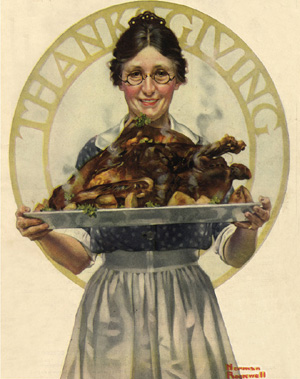 Happy Thanksgiving from all of us at Career Services! We will be closed until 9am on Monday, November 26th.
Happy Thanksgiving from all of us at Career Services! We will be closed until 9am on Monday, November 26th.
We hope you and your loved ones have a relaxed, safe and truly wonderful Thanksgiving!
 Happy Thanksgiving from all of us at Career Services! We will be closed until 9am on Monday, November 26th.
Happy Thanksgiving from all of us at Career Services! We will be closed until 9am on Monday, November 26th.
We hope you and your loved ones have a relaxed, safe and truly wonderful Thanksgiving!
 Happy Thanksgiving, listeners! A very hungry J. Michael and A. Mylène are heading into the holiday thinking about work-life balance. Thanksgiving is a great time to reflect on what really matters and to decide if you’re really cooking with gas or just simmering. It’s a metaphor filled cornucopia this week. Enjoy!
Happy Thanksgiving, listeners! A very hungry J. Michael and A. Mylène are heading into the holiday thinking about work-life balance. Thanksgiving is a great time to reflect on what really matters and to decide if you’re really cooking with gas or just simmering. It’s a metaphor filled cornucopia this week. Enjoy!
Show Notes
– The Downside of Work Life Balance (via James Clear)

Tis the season for interviews! Indeed, here in Career Services, both Michael and Mylène have recently been on search committees as we do our own hiring. In this week’s episodes, we’ll talk about some of the best things you can do in an interview and what will really stand out if omit them! Enjoy!
Show Notes
–10 Best Questions to Ask in an Interview (via The Cut)
 Michael returns from Austin, Texas with a report on what he learned at the 25th Annual Austin Film Festival & Writer’s Conference. Find out what’s new in the world of film, television and podcasting! Enjoy!
Michael returns from Austin, Texas with a report on what he learned at the 25th Annual Austin Film Festival & Writer’s Conference. Find out what’s new in the world of film, television and podcasting! Enjoy!
Show Notes
– Death of the Hollywood Middle Class(via Fast Company)
– ScriptNotes podcast (Recommended listening: Episode 373: Austin Live Show)
J. Michael DeAngelis, Digital Resources Manager
The past two years, it has been my privilege to attend the Austin Film Festival & Writer’s Conference. It is a unique event, featuring a festival of films and shorts that are screenwriter driven and a conference on careers in writing for film, television, theater and podcasting. As a writer myself, I find the conference to be both invaluable and energizing. I can’t thank my colleagues at Career Services enough for supporting my travel to the conference and it’s my pleasure to report back to our students and alumni on what I learned this year.
Here are some of the highlights and takeaways from this year’s conference.
There are more jobs than ever in television, but it’s harder than ever to make a living at it. That was the main topic of discussion during a live taping of the Script Notes podcast. Fast Company ran an article earlier this month called “The Death of the Hollywood Middle Class“, which goes into detail about how the proliferation of streaming services which offer typically shorter seasons than broadcast networks, effects the living of writers, who are paid per episode. As the way in which television content is produced and delivered changes, unions like the WGA are having to try and stay ahead of the curve. I highly encourage everyone interested in writing for television to both read the full article and listen to the Script Notes episode as well.
Podcasts are more popular than ever, but it’s still “the wild west”. As the host of our very own CS Radio podcast, I was particularly interested in attending the podcasting seminars. While CS Radio is a non-fiction, informative show, there’s an entire culture of audio dramas gaining popularity via podcasting. Shows like Bubble, Girl in Space, The Black Tapes and Wolf 359 exist in an exciting intersection of classic radio dramas and DIY garage band grunge. Due to the relatively low cost of producing a podcast, along with direct consumer support from platforms like Patreon, writers are finding a way to get noticed by telling stories they’re passionate about and recording them as podcasts.
There’s no one path to a career in entertainment. I had the great pleasure of getting hear the legendary producer/director Roger Corman talk at the conference. He spoke about how he had gone to college for engineering, despite always wanting a career in the movie business. Struggling to find work in entertainment, Corman got a job as a civil engineer. After just four days on the job, he walked into the HR department and said “This has all been a terrible mistake!” He did land a job at Fox as a script reader and then went to graduate school at Oxford where he studied literature before returning to the studio. Corman noted that his engineering degree helped him quickly learn the technical side of filmmaking, while his literature studies helped him understand what made a good story and how to give a movie a solid structure.
I’ll be talking more about what I learned on next week’s CS Radio.